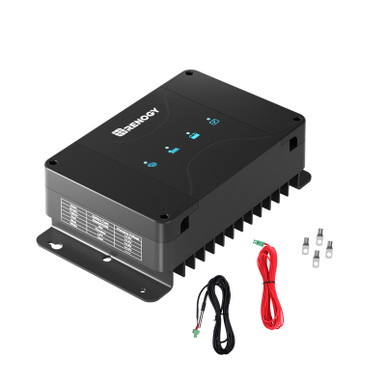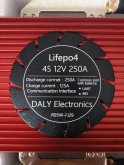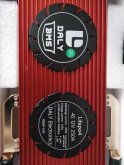I'm going for similar battery etc but will opt, I think, for the renogy all in 1 bat to bat charger + mppt. The 2 limitations are it is 25 amp for each power source and handles a max of 25 volts from the solar panels. It looks impressive though and will trickle charge your starting battery from solar if the leisure batteries are full.
Do 250amp BMS exist? I'm struggling to find a decent 140amp.
Do 250amp BMS exist? I'm struggling to find a decent 140amp.






